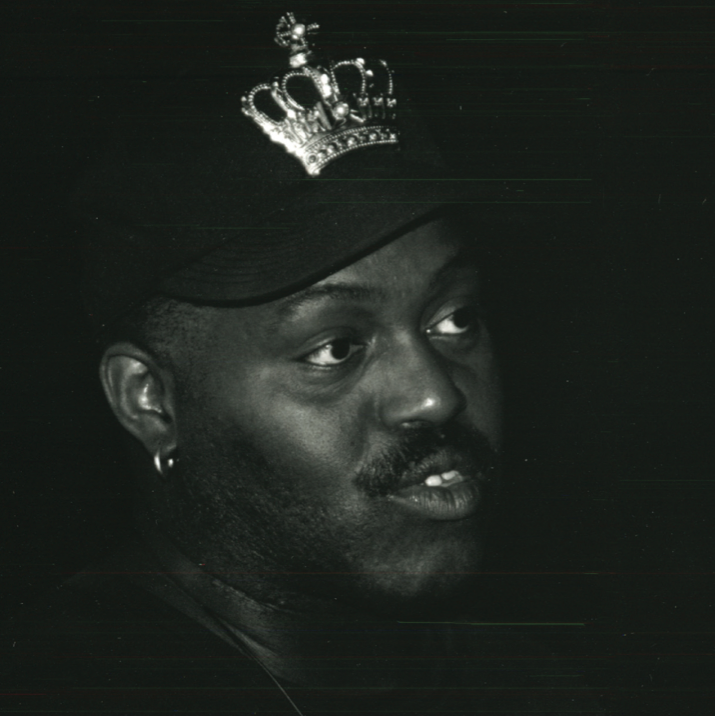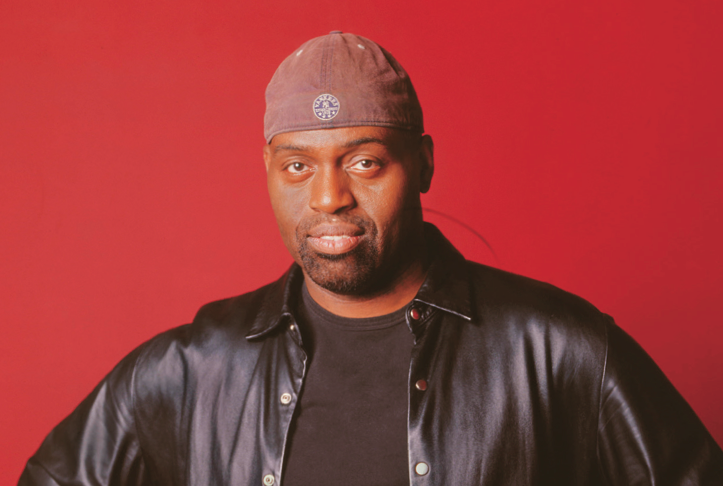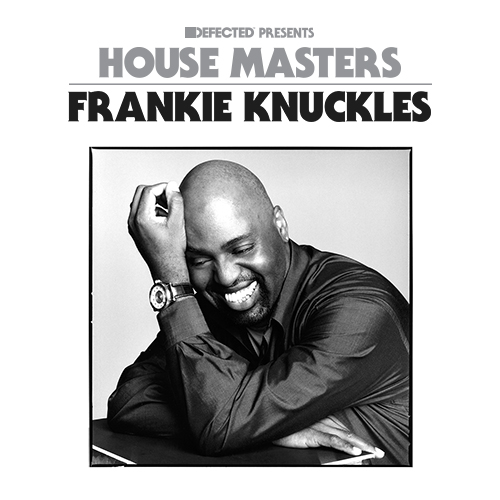It is over a year now, incredibly, since Frankie Knuckles passed away owing to complications from Type II Diabetes. As expected his musical legacy is already in full and positive swing but it’s not just that classic house sound making an ever wider mark. Knuckles, as many commentators remarked at the time of his death, has transcended the uplifting, early hours thrust of 4-4 to become something more – a truly contemporary socio-cultural icon. It follows that his legacy also now extends to supporting pivotal work in the fight against HIV and AIDS, and the various issues around those major conditions.
Last April, the Elton John AIDS Foundation (EJAF) partnered with legendary New York record pool manager Judy Weinstein and Def Mix Productions (the company she subsequently formed with David Morales for managing his and, in turn, Knuckles’ stellar careers) to establish the Frankie Knuckles Fund to support HIV information, testing and treatment on an international basis. The Fund would help drive EJAF’s work with men at high risk of HIV in Africa as well as, more particularly perhaps, African communities in the UK and US.
To date, EJAF has achieved much. The charity was founded in 1992 (the US office preceded its UK counterpart by a year) following the death of 18-year-old Ryan White, a haemophiliac who contracted HIV as a child from a contaminated blood transfusion. Elton, who had met Ryan previously, felt inspired to use his position and set up an organization that could work effectively across the globe towards restricting and preventing infection, and alleviating the suffering (and stigma) of those already with it. 23 years on, through its various innovative fundraising and educational activities, EJAF has helped raise the rate of antiretroviral treatment (ART) beyond the rate of new HIV infections in 5 of the world’s countries most devastated by them. It’s a huge tipping point in terms of preventing the HIV epidemic before it has a chance to kill more people.
In the last 10 years alone, EJAF has funded 152 treatment programmes in 19 countries, helping to reduce AIDS-related deaths by 30%, giving people a staggering 14.4m life years that they wouldn’t have had without readily accessible treatment, and inspiring an estimated £230m in additional funding – funding helping drive the 750% uplift in people around the world on ART. Impressive stuff. But there remains plenty to do. Today, nine countries still need vital support to ensure they reach their own tipping points of higher treatment than infection rates, including Nigeria and the Democratic Republic of Congo. And challenges persist in many parts of the Western world, including the UK and US.

“Generally speaking, there is a functional difference between the West and sub-Saharan Africa” says Anne Aslett, Executive Director of EJAF. “That’s the availability of testing. HIV testing is very widely available in the UK and clinical outcomes here are amongst the best in the world for people who need HIV treatment. Availability in sub-Saharan Africa is very poor on the other hand. However, there are concerning degrees of poverty and stigma around HIV in both parts of the West and Africa. A young black, gay man from a deprived area in the southern US faces the same barriers of poverty and stigma, in terms of accessing HIV treatment, as does a young man from Zimbabwe or Lambeth, south London. The barriers are more acute in parts of Africa where the laws of certain countries block effective HIV services for key groups and actually punish those groups – there are places, for example, where same sex contact is still punishable by death. But, as I say, there are degrees of the same challenges in many places.”
Which is where the newly administered Frankie Knuckles Fund comes in. Aslett reiterates widely-documented research confirming that gay and black African men are among the worst categories of people for discussing HIV concerns with their doctor promptly – for discussing HIV full-stop. Social prejudice and discrimination are largely to blame. In key geographies, Knuckles’ universally popular reputation should help challenge some of that. “The Fund is going to help us drive some ambitious, interesting work – UK-specific projects like those in South London for example” Aslett elaborates. “There are a lot of late diagnosed gay and black African men in South London. Their identification with Frankie, who has this extremely positive, cool image, will be useful. But looking beyond the usual promotions and activities that raise general awareness for charities and fund treatments, we want to find the pieces that really flip that local situation. What prompts someone to finally get tested for HIV and get onto a treatment programme? What are the influencing factors around that, and how can we in turn influence them? Longer-term, can we measure the social and economic impact of making these changes so that other important bodies see their full benefit too.”  The Frankie Knuckles Fund will also drive EJAF initiatives around the world where young gay and black men are subject to significant discrimination and abuse and therefore struggle to gain vital information and healthcare support around HIV and AIDS. A further portion of the money the Fund generates is earmarked for EJAF’s ‘rapid emergency’ arm, providing resources to those immediately, and desperately in need wherever they are.
The Frankie Knuckles Fund will also drive EJAF initiatives around the world where young gay and black men are subject to significant discrimination and abuse and therefore struggle to gain vital information and healthcare support around HIV and AIDS. A further portion of the money the Fund generates is earmarked for EJAF’s ‘rapid emergency’ arm, providing resources to those immediately, and desperately in need wherever they are.
So just how much has the new fund achieved in its first full year? “We’ve obviously had to establish the Fund in the first place and it is still in its infancy” Aslett reminds, “but it has already had a clear impact. Some of the thousands of pounds the Fund has already raised have been successfully allocated to meaningful projects in South London as well as to our rapid emergency work. Over time, we intend to amplify the Fund’s reach.
Aslett references other innovative EJAF programmes which, if it doesn’t directly finance, the Frankie Knuckles Fund will strongly complement. Campaign work in association with major MTV-backed African youth drama Shuga, currently based in Nigeria, is especially noteworthy. The show originally launched in Kenya in 2009, commissioned by MTV Networks Africa, Kenya’s local government and other HIV and AIDS charity bodies to spread awareness about responsible sexual behaviour and tolerance across the continent. It provided an early role for Oscar-winning actress Lupita Nyong’o. Latterly, Shuga has relocated to Nigeria and promotes similar messaging around safe sex, HIV and social equality to 550 million viewers. “Shuga used to be about weaving HIV and sexual health messages into a TV soap” Aslett picks up. “It still makes a difference by doing that but the format has evolved. We’re getting involved right now with Shuga festivals which you can only attend if you register at your local clinic first. These clinics have lots of festival branding so that they feel like safe, familiar places to visit, and people can have a HIV test whilst they register. The festivals will feature big music acts and opportunities to see the cast, so they’re a fantastically innovative way to further engage the people that need support and help.”
The Frankie Knuckles Fund specifically came to pass when Weinstein got chatting to Tony King, long-standing creative consultant to Elton and The Rolling Stones, and a friend. Weinstein wanted advice on what she might meaningfully do in honour of Frankie following his death. King connected her with Aslett and so the idea of charitable collaboration was sparked.
“We talked about the significant HIV-related issues for men of colour, particularly men who have sex with men” Aslett explains. “And how there were challenges in the US and UK as well as Africa. We then talked about Frankie as a great role model and how many of the people we want to help would be able to relate to him and how that identification could help encourage positive change in terms of HIV and AIDS. When I told Elton that we planned to set up a fund with Frankie’s estate he was thrilled. He told me he was honoured to be associated with him. Elton loves Frankie’s music and really admired him as a person. He’s a big supporter of artists giving something back. He’s excited about the work the fund is now doing.”
The association between Knuckles and EJAF is highly compelling. Knuckles grew up in the Bronx, amidst considerable crime and poverty; not to mention unrelenting social and racial tension. As a young gay man, society was starting to change for Knuckles for the better. Post-Stonewall, the disco revolution of the Seventies – a movement he cherished – encouraged greater freedom of expression; yet there were still limits. Chicago club The Warehouse, where Knuckles famously crystallized the ‘house’ sound during the mid-Eighties, was unequivocally a refuge for the city’s gay, Latino and Afro-American communities – communities which, at the peak of the Eighties AIDS epidemic, were furiously stigmatized and persecuted almost everywhere else. In line with the subsequent, universal appeal of his output as DJ and producer, Knuckles looked to ignore all barriers and boundaries, and focused firmly on the unifying power of soulful dance music. As he told one journalist, of DJing, several years ago: “Collectively the room becomes one...Together we all fall in love.” Knuckles’ supreme comfort in his own skin is a valuable lesson today for those who continue to suffer from HIV’s greatest accelerant and symptom – shame. “Considering Frankie’s background and what he believed in, as both an artist and openly black gay man, his association with EJAF is a wonderful fit” Aslett concludes. “Sales of Defected’s brand new Frankie Knuckles compilation album will raise vital funds for our ongoing work. At the same time it’s a great reflection of a pioneering artist. Elton, I know, can’t wait to get his hands on the finished article. He enjoys listening to a lot of different and new music and this project is one he’s been particularly keen to hear for ages. Many of the tracks have been heard before but being that Frankie made those selections himself and now we have this body of amazing work in once place is really powerful. His legacy is incredible. It’s not just the older generation...the younger kids I speak to today are equally aware of him and what he’s done. It’s a huge honour to be extending his legacy even further now.”
“Considering Frankie’s background and what he believed in, as both an artist and openly black gay man, his association with EJAF is a wonderful fit” Aslett concludes. “Sales of Defected’s brand new Frankie Knuckles compilation album will raise vital funds for our ongoing work. At the same time it’s a great reflection of a pioneering artist. Elton, I know, can’t wait to get his hands on the finished article. He enjoys listening to a lot of different and new music and this project is one he’s been particularly keen to hear for ages. Many of the tracks have been heard before but being that Frankie made those selections himself and now we have this body of amazing work in once place is really powerful. His legacy is incredible. It’s not just the older generation...the younger kids I speak to today are equally aware of him and what he’s done. It’s a huge honour to be extending his legacy even further now.”
Words: Ben Lovett
 Defected presents House Masters Frankie Knuckles is out now (2CD and digital) on Defected Records - order from iTunes and order the CD / t-shirt / bundle from DStore now. 100% of the profits will be donated to the Frankie Knuckles Fund.
Defected presents House Masters Frankie Knuckles is out now (2CD and digital) on Defected Records - order from iTunes and order the CD / t-shirt / bundle from DStore now. 100% of the profits will be donated to the Frankie Knuckles Fund.
Other projects are also raising money for The Frankie Knuckles Fund – including Underworld vs The Misterons’ recent cover of classic Knuckles production ‘Baby Wants To Ride’, released by Junior Boy’s Own. Head to www.babywantstoride.com to purchase.
For more information on the work of the Elton John AIDS Foundation (and the Frankie Knuckles Fund), visit http://london.ejaf.org/news/



